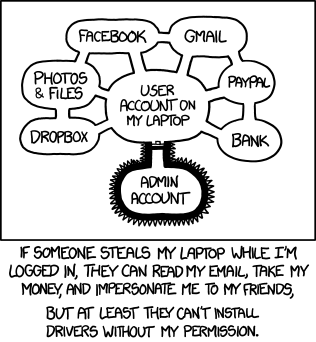Die US-Bürgerrechtsorganisation ACLU hat sämtliche bisher veröffentlichten Dokumente aus dem Snowden-Fundus in einer Datenbank gesammelt, die öffentlich zugänglich ist. Sie soll laufend aktualisiert werden. (Datenschutz, Internet) 
24 public comments

Or one could practice physical security as well as digital security. Around this time of year, every student's laptop is stolen.
Northeastern US



